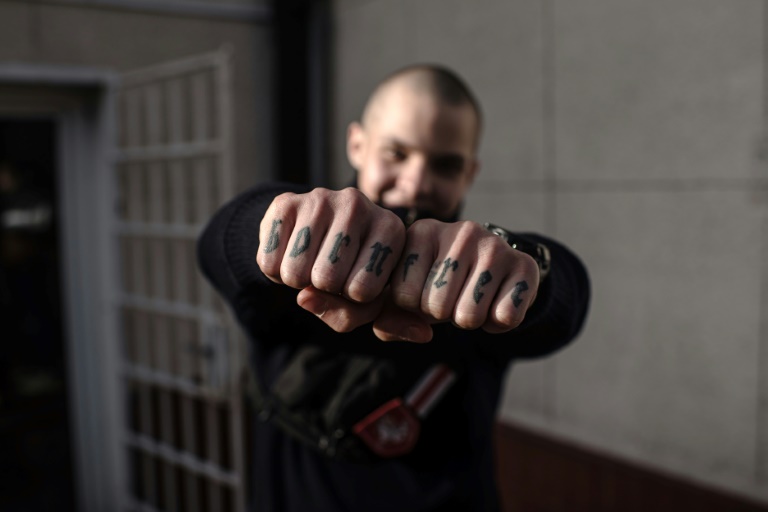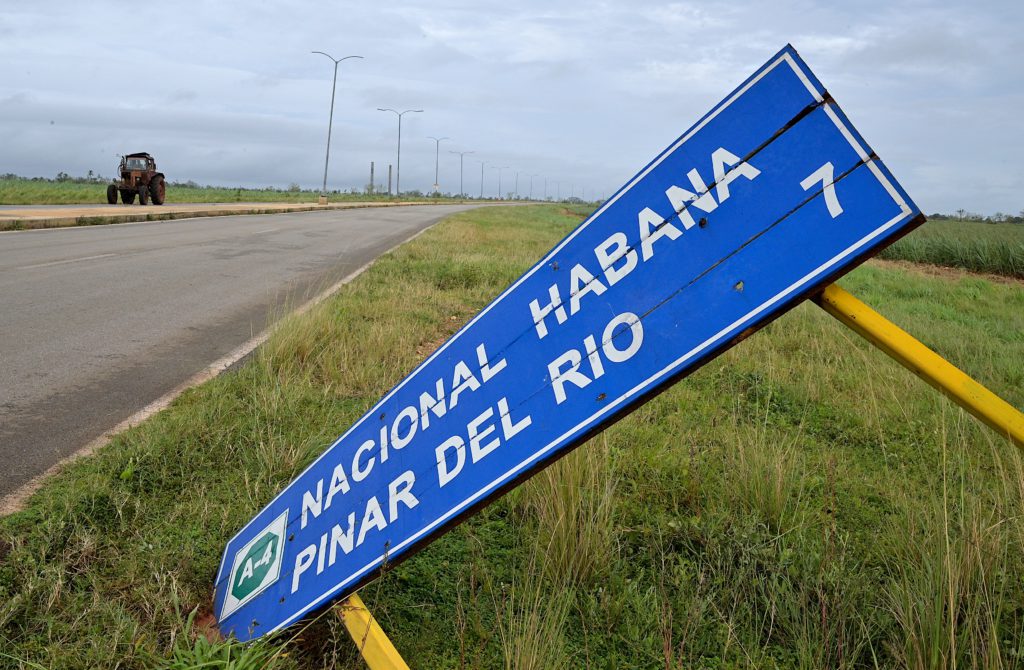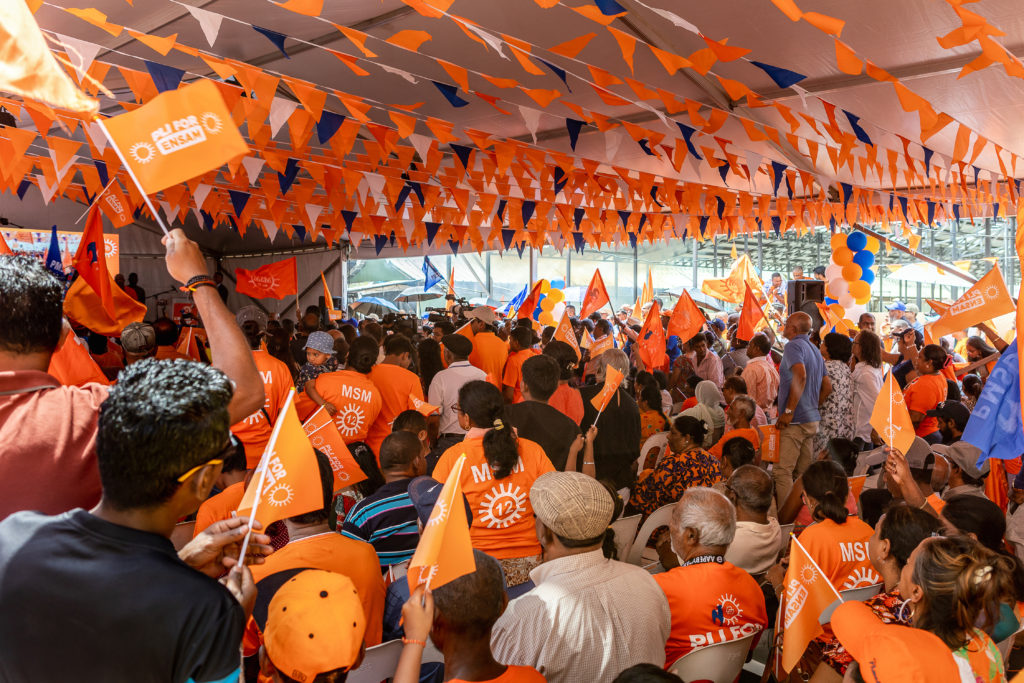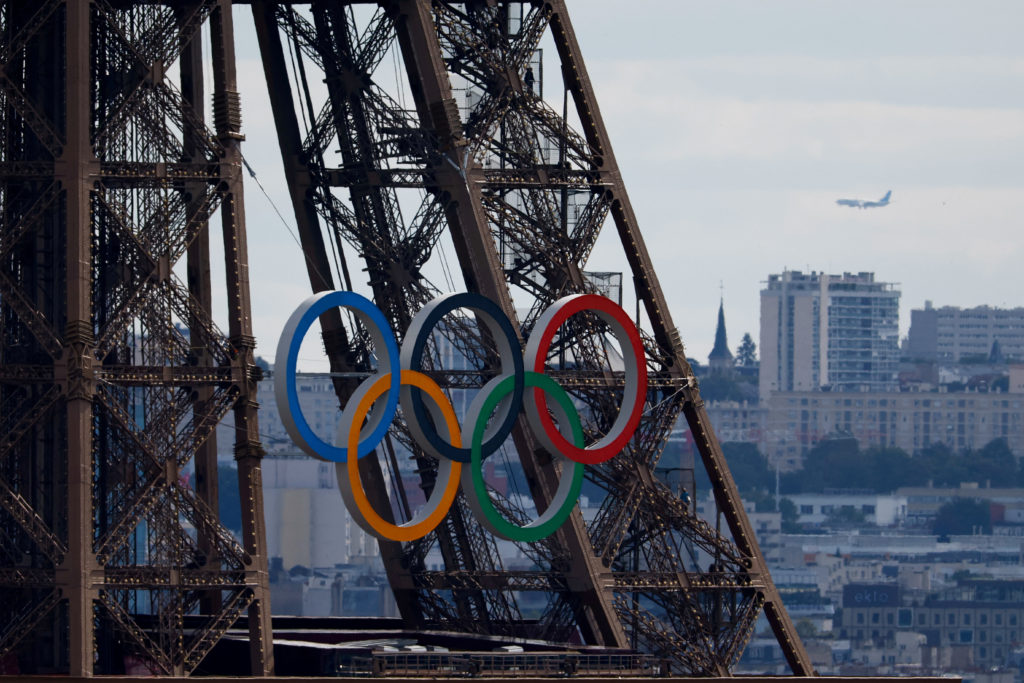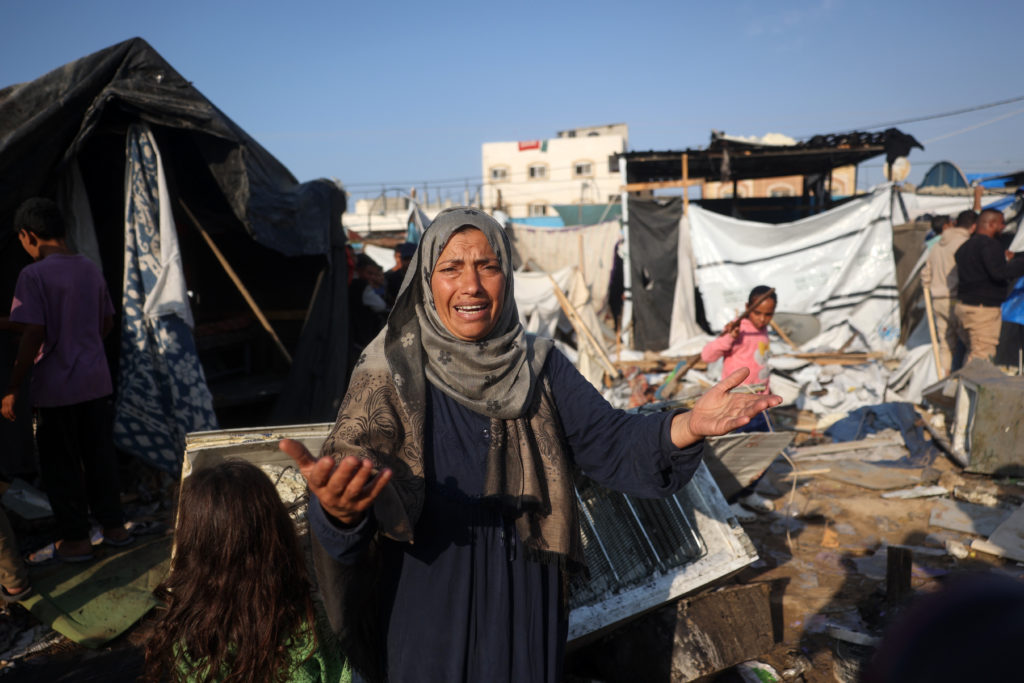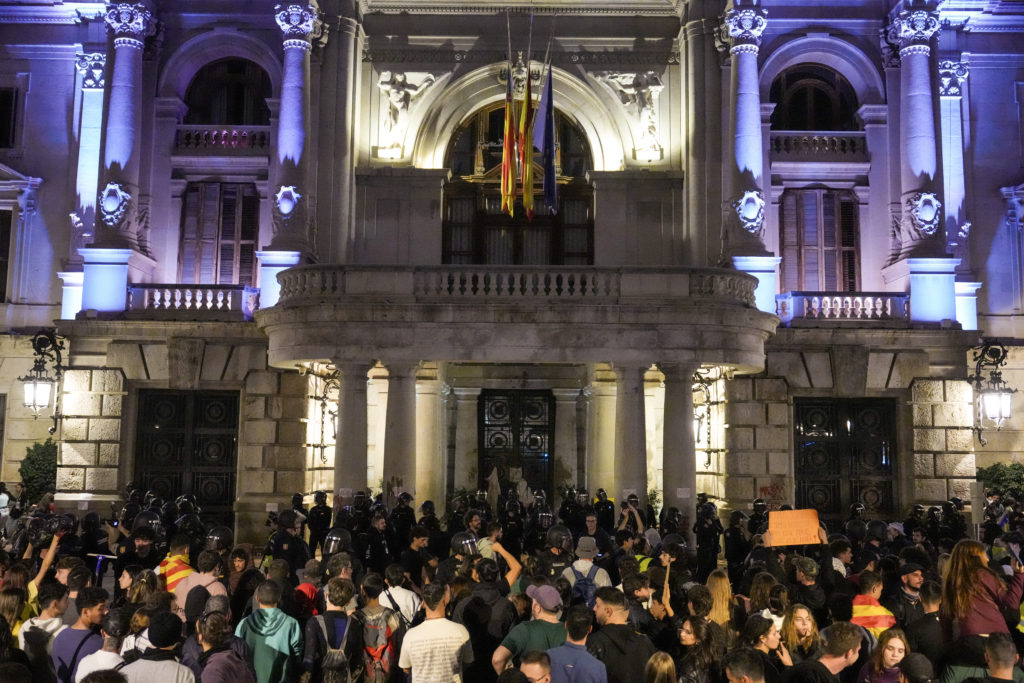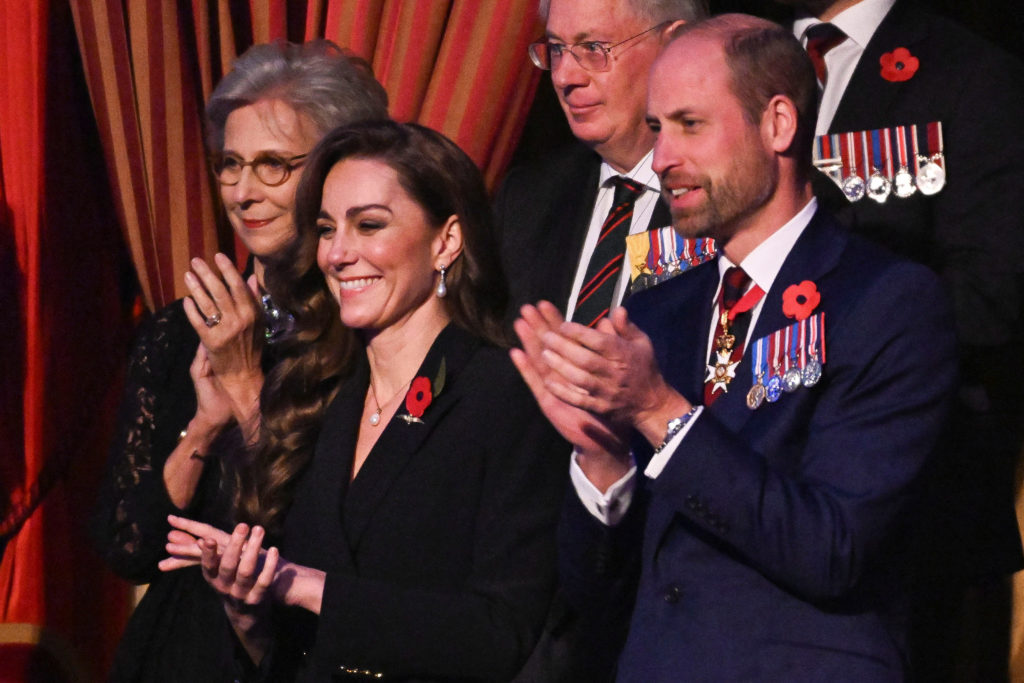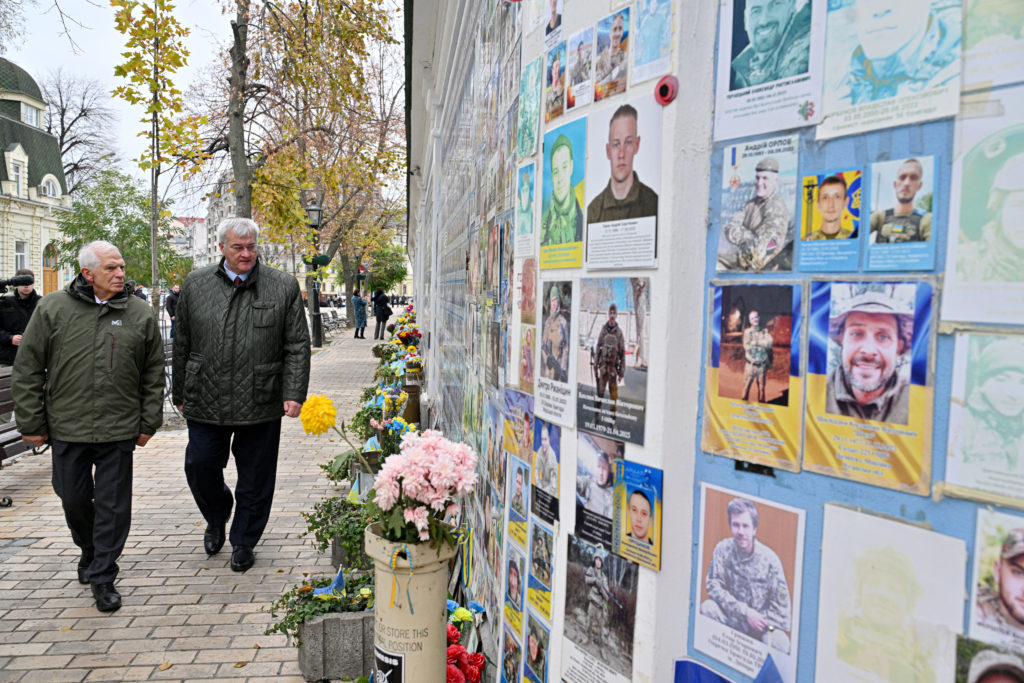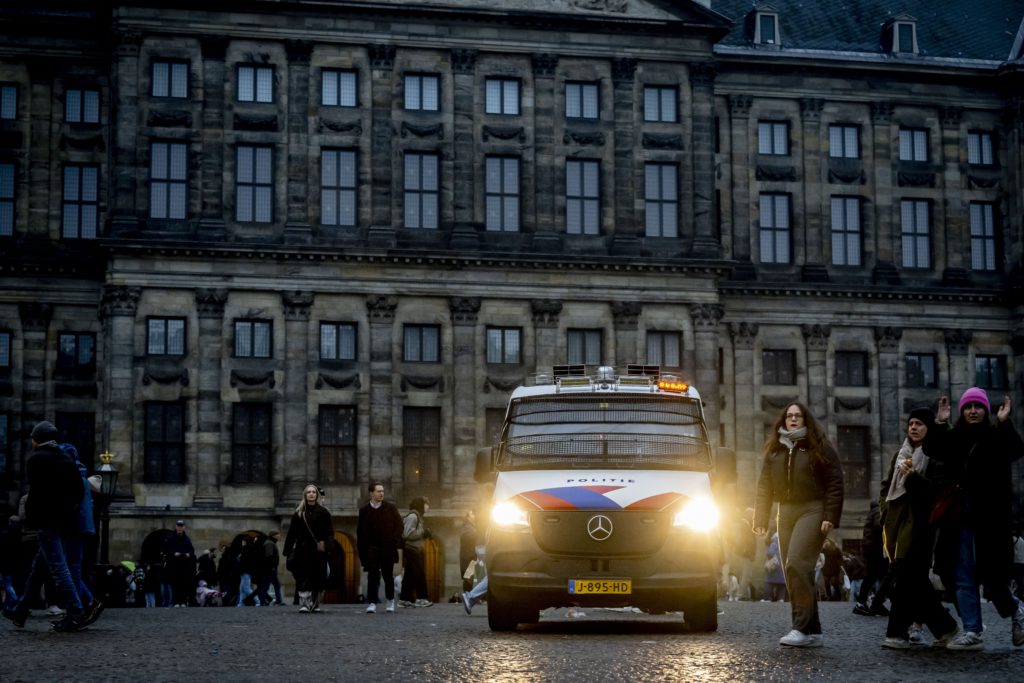For teenager Gleb Gunko, war-torn Ukraine will be his first time in combat. But the cause is nothing new. As a Belarusian, he knows what it means to fight for freedom.
“I’m going to Ukraine not only to support Ukraine and fight for Ukraine but also to fight for Belarus,” the 18-year-old now living in Grojec, Poland, told AFP.
“Because our freedom also depends on the situation there and what happens now,” he added, sporting knuckle tattoos that spell out the words “Born free”.
Originally from Minsk, Gunko left in 2020, the year Belarusian President Alexander Lukashenko launched a ferocious crackdown on opponents.
The campaign of repression came as mass protests erupted after Lukashenko claimed victory at an election called fraudulent by the West.
Now the Belarusian leader, in power for nearly 30 years, has drawn international condemnation for supporting and enabling Russia’s invasion of Ukraine.
But while the regime in Belarus is Kremlin-aligned, many ordinary citizens are siding with Ukraine and, like Gunko, even taking up arms.
“Belarusians cannot help Ukraine with weapons, as the whole world is doing, but they cannot stand aside, so they are going to fight for the brotherly country’s independence,” the Belarusian House Foundation in Warsaw said on Facebook.
The NGO, which works for human rights and democracy in Belarus, has been handling the logistics of sending volunteer Belarusian fighters to Ukraine.
– ‘Our freedom and yours’ –
“Lukashenko and (Russian President Vladimir) Putin are two terrorists for the entire world. They know they have power and can wield it in front of everyone,” said Pavel Kukhta, head of the new volunteer centre.
“This is a battle between democracy and freedom on one side and dictatorship on the other,” the 24-year-old Belarusian told AFP.
Kukhta has intimate knowledge of the war, having fought Putin’s military grip on Donbas, eastern Ukraine, from 2016 until he was injured by a landmine in 2018.
“We fought under the slogan of ‘our freedom and yours’,” said the trained soldier, whose older brother is believed to have been killed by Belarusian security forces during the mass protests.
“Back then in Donbas we thought that Putin would occupy Belarus. But because of Lukashenko, it was accomplished without a single shot fired,” he added.
“Lukashenko no longer decides anything. Everything goes through Russia and Putin.”
While Kukhta spoke, the volunteer centre bustled with activity, as people filled boxes with bullet-proof vests, power banks, canned food, medicine and other essentials for the Belarusian fighters.
The latest group would be driving to Ukraine that evening and were already at the centre, their morale high as they believed they were on the right side of history.
– Like grandfather, like grandson –
Alexey Kovalczuk, a Belarusian who for years has worked as a seasonal snowboard instructor in Ukraine, said he was feeling “a pleasant kind of anger, a war anger”.
Having helped evacuate people from the Bukovel ski resort in western Ukraine just after Russia invaded, he has already witnessed the conflict first-hand.
“I saw crying women, children. They were wiping the tears from their eyes. I saw burning fires,” said the 41-year-old who spent several years in the special forces.
“I saw these difficult situations there and I understand what’s happening now in Mariupol, Kharkiv, Kyiv and other cities because of friends and relatives,” he told AFP.
“I don’t understand how you can kill civilians. I don’t understand that,” he said.
Another Belarusian volunteer fighter, Andrei Korsak, wandered over clutching some well-worn black-and-white and sepia family photos.
“I’m taking my grandfathers to Ukraine… They both fought in World War II, while this one also defended Warsaw in 1920,” he said, pointing to the faces of his kin in uniform.
“Now, a century later, I their grandson am forced to go fight the Russian hordes again, to stop them,” the amiable 53-year-old Ikea deliveryman told AFP.
“I will do anything to stop this evil,” said the Warsaw resident who hails from the historic city of Polotsk in Belarus.
While he would rather not kill anyone, he said, “if it comes to that, I will imagine that the person before me is riot police from Minsk.”
“It will be easier for me that way.”

